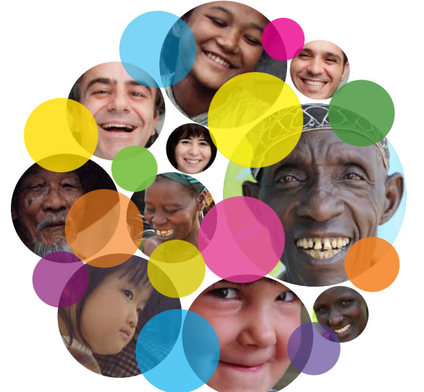As the UN resolves to pursue happiness, can science help people get happier?
A little over a month ago, the United Nations hosted a Conference on Happiness and implemented Resolution 65/309, adopted unanimously by the General Assembly in July 2011, placing “happiness” on the global agenda.
The Resolution states:
“Bearing in mind the purposes and principles of the United Nations, as set forth in the Charter of the United Nations, which include the promotion of the economic advancement and social progress of all peoples,
Conscious that the pursuit of happiness is a fundamental human goal,
Cognizant that happiness as a universal goal and aspiration embodies the spirit of the Millennium Development Goals,
Recognizing that the gross domestic product indicator by nature was not designed to and does not adequately reflect the happiness and well-being of people in a country,
Conscious that unsustainable patterns of production and consumption can impede sustainable development, and recognizing the need for a more inclusive, equitable and balanced approach to economic growth that promotes sustainable development, poverty eradication, happiness and well-being for all peoples…”
A complementary World Happiness Report (download PDF) was commissioned for the UN Conference on Happiness. The report, published by the Earth Institute and co-edited by the institute’s director, Jeffrey Sachs, reflects a new worldwide demand for more attention to happiness and absence of misery as criteria for government policy. It reviews the state of happiness in the world today and shows how the new science of happiness explains personal and national variations in happiness.
More stats from the 158-page report:
- Happier countries tend to be richer countries.
- On average, the world has become a little happier in the last 30 years (by 0.14 times the standard deviation of happiness around the world).
- Unemployment causes as much unhappiness as bereavement or separation. At work, job security and good relationships do more for job satisfaction than high pay and convenient hours.
- Behaving well makes people happier.
- Mental health is the biggest single factor affecting happiness in any country.
- Stable family life and enduring marriages are important for the happiness of parents and children.
- In advanced countries, women are happier than men, while the position in poorer countries is mixed.
- Happiness is lowest in middle age (contrary to several studies that have come out recently!)
As you read those stats, did you consider how you feel about the indicators—how’s your job, your behavior, your mental health, your family, your age? The report proposes two evaluative questions:
- Taking all things together, how happy would you say you are? (where 0 means extremely unhappy, and 10 means extremely happy)
- All things considered, how satisfied are you with your life as a whole nowadays? (where 0 means extremely dissatisfied and 10 means extremely satisfied.)
- You could also try rating each day’s happiness for a period, like a week, to study how you experience your day-to-day existence.
Considering your responses and how you stack up can give you some perspective. What do you think about the focus on quantative data—the scientification—of happiness? Does it give more weight to “emotions” and “feelings” or is it silly to try to measure such things?

